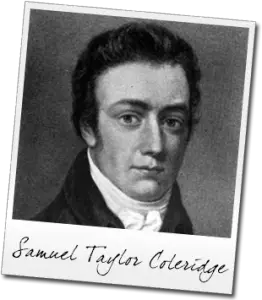Desire by Samuel Coleridge:
Desire Poem Text
It is the reflex of our earthly frame,
That takes its meaning from the nobler part,
And but translates the language of the heart.
Desire Review
Samuel-Coleridge was a patron of love, rather, practical love. In this piece, he puts in a tinge of coquetry and plays with it at will.
Coleridge discovers and explores the concept of physical attraction between two individuals who are in love. Often, true love is supposed to be thought of as an emotion placed on the highest pedestal, dismissing or rebuking any hint of lust.

Bernard Shaw, in his anti-romantic drama, ‘ The Arms and the Man ‘ explains this with a story most beautifully carved. This poem, too, is along those lines.
The poet, through his wordplay, explains the need for ‘ desire ‘ between a couple. He enumerates the need of the fire that keeps the souls warm. He considers lust as an essential part of love.
Samuel Coleridge
He conveys that love and lust go hand in hand and there is no such thing as ‘ higher love ‘ or romantic love without any physical attraction.
While one is reading this poem, it is to be noted and kept in mind that the poet had written this in an era when ‘ true ‘ love was regarded as something that could not kindle lust between two individuals. Coleridge had the courage to think otherwise. The ability to judge things differently made him stand as an exception in a crowd. This poem is the evidence.
Desire by Samuel Taylor Coleridge Analysis
Samuel Coleridge is essentially contrasting and comparing Desire and Love. According to Coleridge, Love comes from the soul and it is a spiritual connection with another human being. The Desire is the symbol by which a person can express their Love. Desire is a very short yet very moving poem and it is the physical expression of spiritual Love.
More Info On- Great Man by Samuel-Coleridge, Faded Flower by Samuel-Coleridge